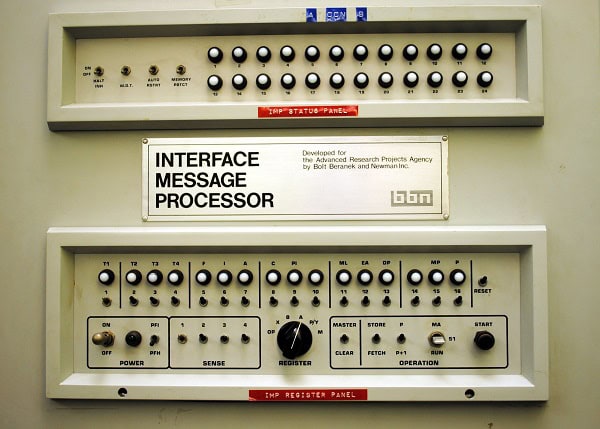In the four years since Don Mabry’s exciting article about the internationalization of on-line discussions among historians appeared in Perspectives, the world of global cyberspace scholarship has grown from a novelty to a fundamental part of the professional lives of thousands of historians worldwide (Perspectives, February 1991, p. 1). Among the most dynamic and effective contributions to the realization of Mabry’s vision is H-Net, which has been organized by Richard Jensen (Univ. of Illinois at Chicago) and a group of over a hundred dedicated volunteers. H-Net has professionalized the world of international electronic scholarship by organizing into a format that parallels accepted academic practices and models. Today, on a round-the-clock basis, over 19,000 scholars based in 59 countries take part in discussions that resemble academic symposia. Many of these participants live thousands of miles apart and would otherwise have no chance to compare professional concerns and insights. What follows is a description of the state of participation on some of the international electronic lists available through H-Net. These descriptions were provided by several H-Net scholars who edit and moderate some of the more than 50 H-Net discussion groups.
East and Southeast Asia
Scholars based in East and Southeast Asia play an important but still limited role in the H-Net cyberspace world. H-Asia includes more than 800 members in 25 countries. Approximately 40 of these members are based in Asia, with Japan and Taiwan the most widely represented. Hong Kong and Singapore residents also take part, while the People’s Republic of China is only now officially going on line. Although academics in China are increasingly on line, the local pricing structure—prices are calculated on a per message basis—makes it difficult for them to take part in professional discussions, which can include up to 10 posts a day.
South Asia
The Ernet system of India provides limited access to important nodes, but only a few university humanities and social science faculties in South Asia are able to gain access, and then often as guests of another program. Although India is the home of some of the most sophisticated software development in the world, and institutionally widely on line, historians are rather far back in the queue for Internet access. At the present time H-Asia has precisely one subscriber in India.
Europe
Although different European nations seem to be proceeding at different paces, the Internet is a hot issue in Europe; governments and private companies are discussing the rules and the future of a fast-growing market. European historians, however, are only slowly going into the Internet world. Reasons for this slowness are linguistic boundaries, academic traditions, and different national standards in communicating. Nevertheless, some universities are well wired, and the big national computer centers provide a good set of connections for academics. Some students have reasonable access to the Internet through their universities. Others, however, rarely have access to the Internet, and this lack of access contributes to defining the character of European lists more as academic newsletters than as discussion forums. Librarians and archivists are the avant-garde in the humanities area.
Latin America
There are several factors that limit access to cyberspace for historians in Latin America and the Caribbean. Although universities in general and science-related departments in particular seem to have very good access to the Internet, computers seem to be limited in nonscience departments. The lack of computers may be due to their price, which seems to be almost double the price in the United States. The cost of a computer for home use can be the equivalent of three months of a professor’s salary. In addition, telephone lines in many Latin American countries are very limited, and a request for a new telephone can take months or years to be fulfilled. The local telephone networks are also subject to unexpected failures. Available modems for home use are expensive and slow. There are commercial carriers like Compuserve available throughout Latin America, but sign-up fees and monthly charges are very expensive. Even with a university connection, scholars in Latin America can have serious problems using Internet sources. Ricardo Salvatore at the Universidad Torcuato Di Tella in Buenos Aires, Argentina, reports that because of the slowness of his university’s connection it can take hours to connect and search for bibliographic references that U.S. scholars can obtain in only a few minutes.
Africa
There are abundant electronic resources on Africa and African studies, and H-Africa should be launched shortly. Nevertheless, Internet access in Africa itself is severely limited. Egypt and South Africa have well-developed computer networks; Algeria and Tunisia have incipient systems. Apart from these networks, most of Africa is not really on the Internet map yet. Of the thousands who take part in the various H-Net discussions, only a few subscribers log on from North or South Africa.
United Kingdom and Australia
Even though Britain is a technologically advanced country, individual computer use is somewhat limited. The universities are on line, but many faculty lack individual PCs and network connections from their offices. People generally go to computer rooms to read their e-mail or to use the Internet. Few have modems at home, which also limits access. In addition, writing in longhand is still especially common in the production of papers in the humanities in Britain. This reluctance to type spills over into computer use, affecting skill levels and the willingness to use new technology. In contrast to their British counterparts, Australian academics have taken to international e-mail with great enthusiasm; more than 36 Australian members from 14 universities are represented on H-Asia alone.
Conclusion
H-Net, which now includes over 59 countries, continues to expand each day. In some countries, scholars have come on line with extraordinary enthusiasm; nevertheless, there are certain issues that make the growth in H-Net use somewhat less impressive than it appears. A very high percentage of those who take part are academics based in North America, and even those who log in from other regions are very often Western academics rather than local national scholars. Certainly, some among us wonder whether we have a created a truly global network or have simply organized the “internationalization of American scholarly discussion.” Humanists in many countries outside of North America are often not allotted, by their colleagues in the natural and computer sciences faculties, the disk space necessary to take part in international discussions. And the price of computers and access to networks is often far more expensive for academics in South America, Latin America, Asia, and even Europe than for those in North America. Nevertheless, given how early we are in this electronic revolution, it is still feasible to argue that a truly impressive beginning has been made in the effort to internationalize the world of scholarship.
Contributors to this article include Steven A. Leibo (H-Asia), Frank F. Conlon (H-Asia), Sharon Michalove (H-Albion), Phil Mueller (H-Latam), Franco Andreucci (H-Italy), and Jeff Finlay (H-Amstdy).


